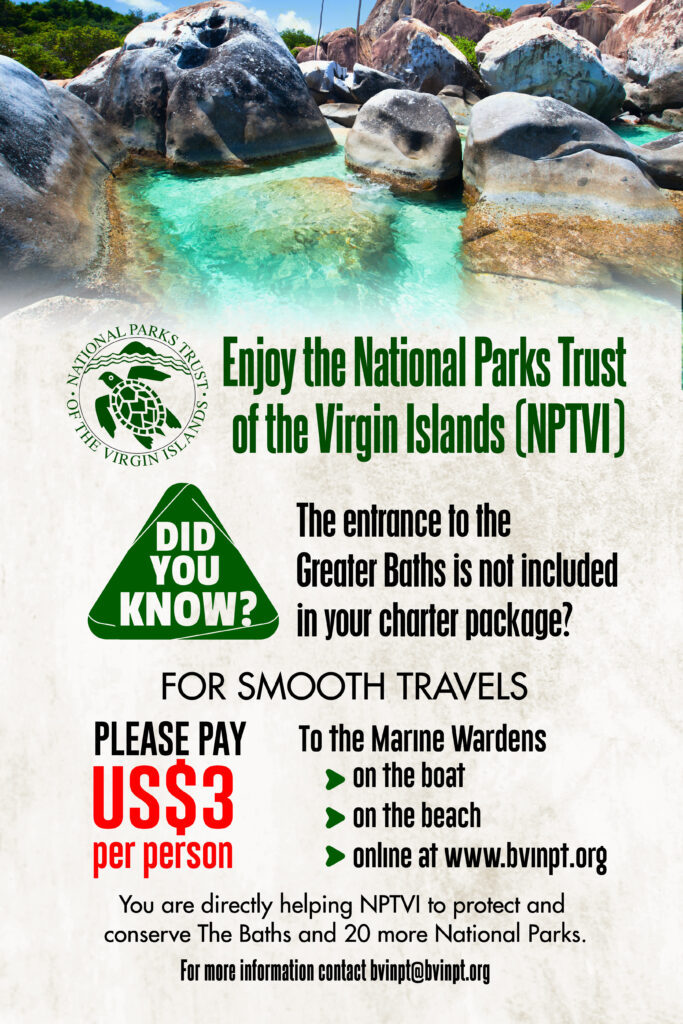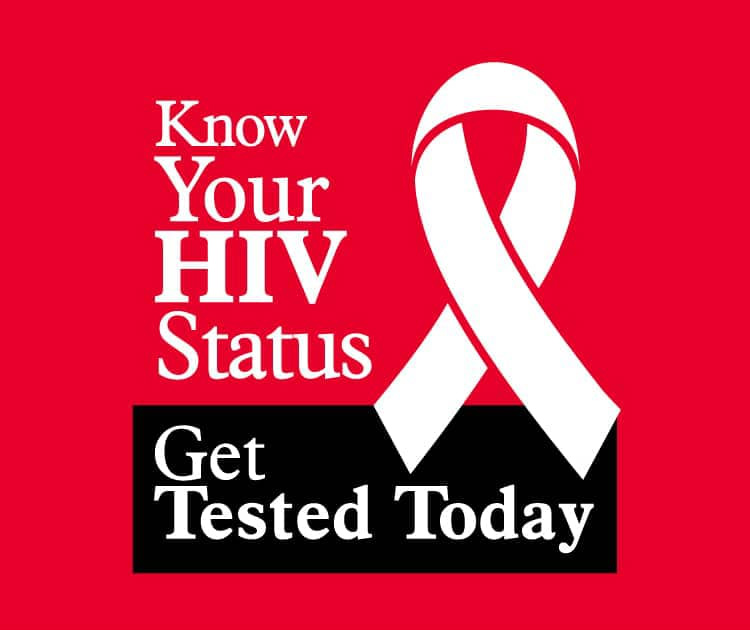International
BVI’s Finest Warriors Return Victorious from Black Belt Grading in Trinidad and Tobago
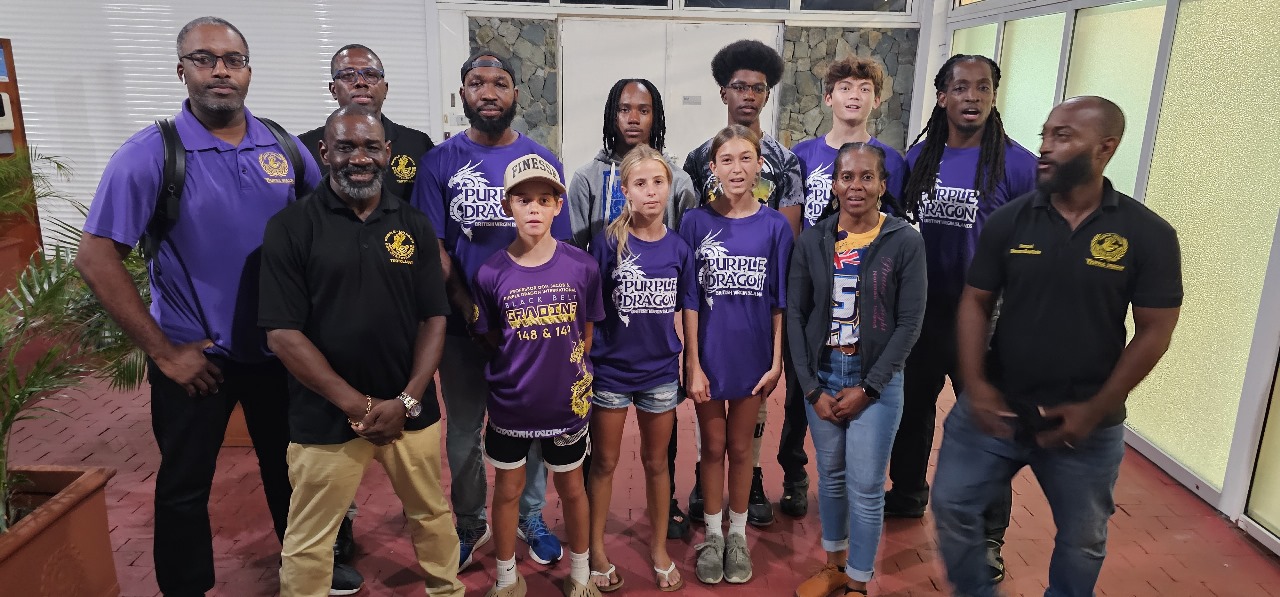
The echoes of celebration filled the air as the Purple Dragon warriors returned to the British Virgin Islands (BVI) after a rigorous black belt grading in Trinidad and Tobago.
Shihan Bevon Baptiste, the head of the Purple Dragon dojo (BVI), expressed his gratitude for the warm welcome and took pride in the achievements of the 15 candidates who not only represented themselves but also their families, the dojo, and the entire British Virgin Islands.
“This is a huge deal. We have upgraded to black belt, and they’ve done it with excellence,” Shihan Baptiste proudly proclaimed to the gathered crowd at the Terrance B. Lettsome International Airport.
The warriors underwent three intense days of grading, where they faced challenges that tested their physical and mental resilience. Shihan Bevon Baptiste highlighted the significance of the achievement, emphasising that each candidate contributed to the BVI having the largest international presence in Trinidad for the event.
Among the distinguished achievers were Sensei Otis Jacob, who attained a fourth-degree black belt, and Dr. Mitchell Penn and Nicolas Laurac, who reached the title of Senpai at third-degree black belt. Shihan Baptiste commended their dedication and hard work, emphasising the unique journey each warrior undertook to earn their black belts.
Instructor Jovan Cline seized the opportunity to address the crowd, expressing his excitement and pride. He reflected on the significance of the black belt grading, highlighting the mental strength and discipline instilled by Purple Dragon martial arts.
“One of the main things that we teach at Purple Dragon is that it’s 90% mental and 10% physical. We build up the inner self, and once that inner self is strengthened, you can stand stronger,” shared Instructor Cline.
The warriors’ journey included grueling physical exercises, self-defense routines, and intense sparring against competitors from around the world. Their representation of the BVI showcased the strength and skill nurtured within the Purple Dragon Dojo.
Grandmaster Professor Don Jacob, the founder of Purple Dragon, played a pivotal role throughout the grading weekend. His lectures, stories, and lessons provided a foundation that extends beyond the physical aspects of martial arts.
As the warriors returned to a hero’s welcome, the crowd erupted into chants of the Purple Dragon anthem, symbolising the unity and strength of the martial arts family.
The celebration continued with individual warriors sharing their experiences. Sensei Verne Turnbull spoke of the challenges faced and the lessons learned, emphasising the mental and emotional growth witnessed during the grading.
Dr. Miles Pin, who observed the grading, expressed admiration for the competitors and highlighted the level of competition in Trinidad. The Purple Dragon warriors were praised for their immaculate performance and representation of the British Virgin Islands.
As the warriors gathered, Shihan Baptiste led them in traditional martial arts exercises, demonstrating the strength and unity of the Purple Dragon family. The celebration concluded with heartfelt congratulations, acknowledging the warriors’ resilience, dedication, and the honour they brought to the British Virgin Islands through their accomplishments.
International
BVI Urges UK and Other Colonial Powers to Support Self-Determination of Remaining Territories
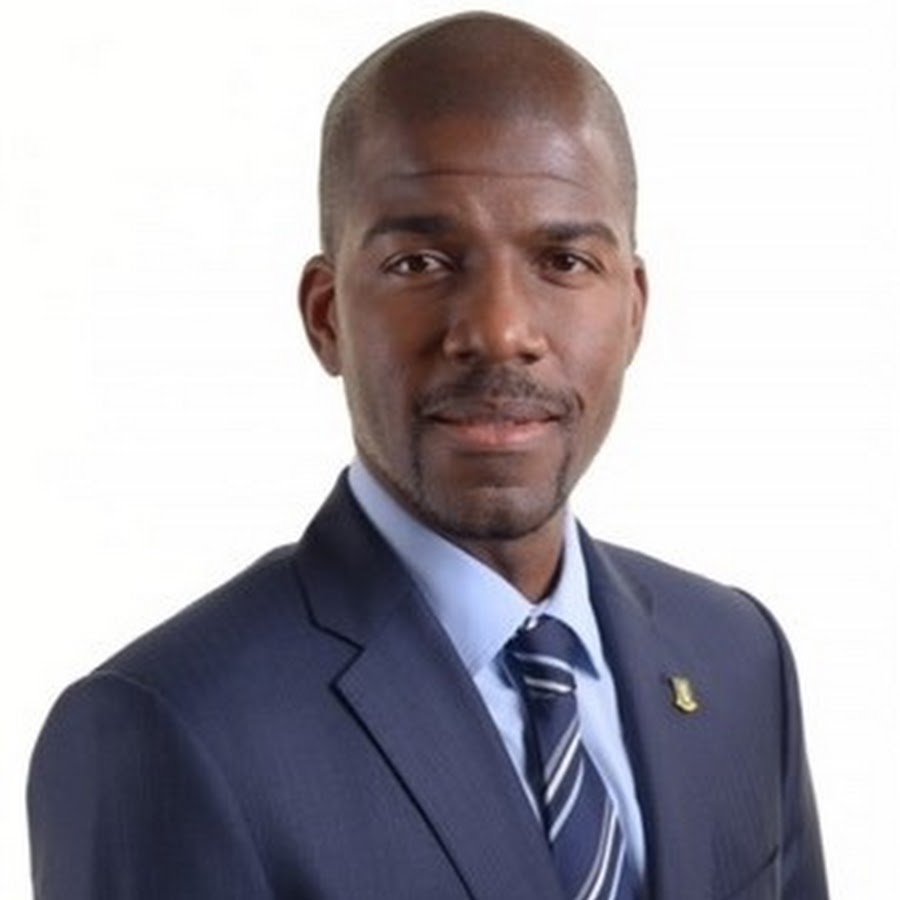
In a direct appeal to the international community, the British Virgin Islands (BVI) has called on the United Kingdom and other colonial powers to set aside their national interests and support the self-determination of the 17 remaining non-self-governing territories under the mandate of the United Nations Special Committee on Decolonisation (C-24).
Speaking at the UN’s Pacific regional seminar on decolonisation, held in the Timorese capital Dili from 21st to 23rd May, BVI Special Envoy Benito Wheatley urged administering powers to recommit to the principles of decolonisation and support a meaningful pathway to self-government for the remaining territories on the UN’s list.
“We all must work together to make progress on decolonisation,” Mr Wheatley said in his address. “I know it is hard to separate national interests from the process, but an effort must at least be made to work in the best interest of Non-Self-Governing Territories.”
He added that the Special Committee should prioritise the dispatch of visiting missions “where this is practicable,” noting that “the politics of the process is very complicated and requires dialogue, but no effort should be spared.”
The BVI, which hosted a UN visiting mission in August 2024, was recognised in the mission’s report for its advancement toward full internal self-government. The mission also recommended the establishment of a timetable for the Territory’s eventual independence.
Mr Wheatley expressed appreciation for the UN’s engagement and reiterated the Territory’s commitment to good governance and democratic reform. He also used the opportunity to highlight the broader need for sustainable development assistance, particularly in the face of growing climate threats.
“To truly advance self-determination, UN agencies must play a more active role in supporting the development priorities of these Territories,” Mr Wheatley stated. He urged the C-24 to adopt a resolution at its upcoming June session that would allow UN agencies to utilise their regular programme budgets to support Territories classified as Small Island Developing States (SIDS), especially those that are associate members of regional commissions such as ECLAC and ESCAP.
In a firm message to London, Mr Wheatley also called on the United Kingdom to formally withdraw the Order in Council currently held in reserve, which grants it the power to suspend the BVI’s constitution and impose direct rule if triggered.
“There is no longer an excuse for the UK to maintain this unnecessary, undemocratic and blunt colonial instrument over the Territory,” he said, noting that the BVI had completed the governance reform programme agreed in 2022.
The UN’s list of territories yet to be decolonised includes American Samoa, Anguilla, Bermuda, the British Virgin Islands, Cayman Islands, Falkland Islands, French Polynesia, Gibraltar, Guam, Montserrat, New Caledonia, Pitcairn, Saint Helena, Tokelau, Turks and Caicos Islands, the United States Virgin Islands, and Western Sahara.
The seminar in Dili marks a continuation of the UN’s longstanding commitment to decolonisation — a process that remains incomplete nearly eight decades after the adoption of the UN Charter.
International
Cardinal Robert Prevost of Chicago Elected as Pope Leo XIV

– First American Pontiff in Catholic Church History
The College of Cardinals has elected Cardinal Robert Francis Prevost of Chicago as the 267th pope of the Roman Catholic Church. He will be known as Pope Leo XIV, marking the first time an American has ascended to the papacy in the Church’s two-millennia history.
The announcement came at 6:07 p.m. local time, when white smoke billowed from the chimney of the Sistine Chapel, signaling the successful conclusion of the conclave’s fourth ballot. Shortly thereafter, Cardinal Protodeacon Dominique Mamberti proclaimed the traditional “Habemus Papam” from the balcony of St. Peter’s Basilica.
Appearing before a jubilant crowd in St. Peter’s Square, Pope Leo XIV offered his first apostolic blessing and addressed the faithful with a message of peace: “Peace be with all of you! I want this salute of peace to enter your heart, reach your families, and all people, and all the peoples, and the whole world.”
Born in Chicago in 1955, Robert Prevost is a member of the Order of St. Augustine. He spent decades serving as a missionary in Peru, where he taught theology and held various administrative roles within the Church. In 2023, he was appointed to lead the Vatican’s Congregation for Bishops, a position that placed him at the heart of the Church’s global leadership.
Pope Leo XIV’s election is seen as a unifying choice amid ideological divisions within the Church. His background reflects a commitment to inclusivity and dialogue, values that align with the synodal approach emphasized by his predecessor, Pope Francis. In his initial remarks, Pope Leo XIV expressed a desire for a Church that is “engaged with the modern world and always looking for peace, charity and being close to people, especially those who are suffering.”
The new pontiff faces a range of pressing challenges, including fostering unity within a polarized Church, addressing global conflicts, and continuing efforts to reform Church governance and address past abuses. His leadership will be closely watched as he navigates these complex issues.
Pope Leo XIV’s election has been met with congratulations from leaders around the world. U.S. President Donald Trump lauded the historic moment, stating, “It is such an honor to realize that he is the first American Pope. What excitement, and what a Great Honor for our … .”
As the Catholic Church enters this new chapter under Pope Leo XIV’s guidance, the faithful and observers alike look forward to the direction he will set for the global community of believers.
Business
Caribbean Shipping Secures Exemption from U.S. Port Fees on Chinese-Built Vessels
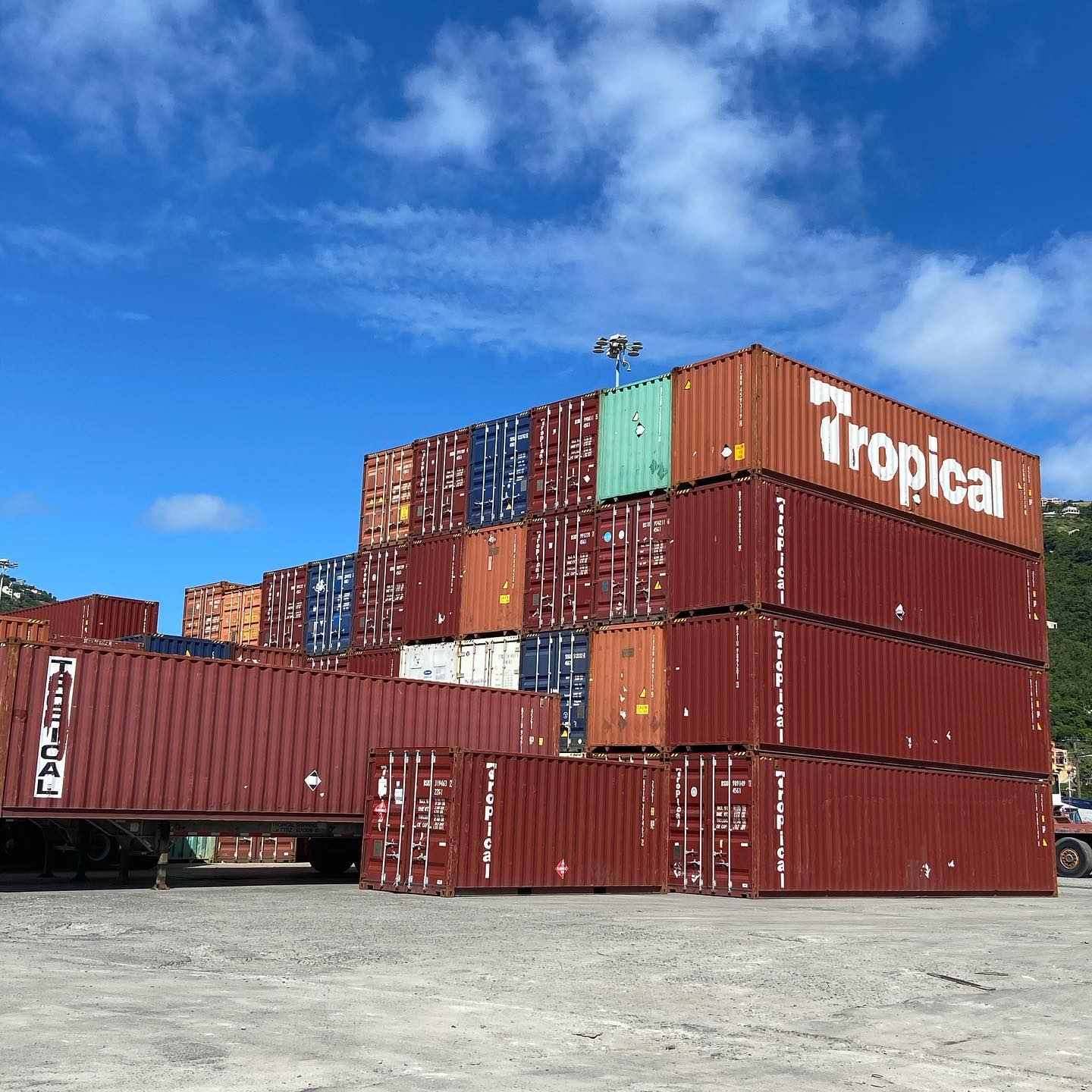
The Office of the United States Trade Representative (USTR) has exempted Caribbean shipping routes from newly proposed port fees on Chinese-built vessels. This decision follows concerted advocacy by the Caribbean Private Sector Organisation (CPSO) and regional stakeholders, who warned that the fees could have devastating economic consequences for the Caribbean.
The USTR’s initial proposal aimed to impose fees of up to $1.5 million per port call on vessels constructed in China, as part of a broader strategy to counter China’s dominance in global shipbuilding and bolster the U.S. maritime industry. However, the policy faced immediate backlash from Caribbean nations, where a significant portion of shipping relies on Chinese-built vessels.
Dr. Patrick Antoine, CEO and Technical Director of the CPSO, testified at a USTR public hearing, emphasizing that over 90% of CARICOM’s trade in goods depends on maritime transport. He warned that the proposed fees could lead to a 60% increase in shipping costs to and from the Caribbean, severely impacting economies where more than 50% of the ships are Chinese-built.
The potential repercussions were particularly alarming for smaller Caribbean states like Antigua and Barbuda, Dominica, Grenada, St. Lucia, and St. Vincent and the Grenadines, which rely heavily on short-sea shipping routes serviced by Chinese-built vessels. Prime Minister Gaston Browne of Antigua and Barbuda expressed concern that shipping a container could increase by $3,000 to $4,000, leading to an 8–10% rise in consumer prices and pushing inflation rates to potentially 12–14%.
In response to these concerns, the USTR revised its policy to exempt ships operating between U.S. domestic routes, the Caribbean, U.S. territories, and Great Lakes ports from the new fees. This adjustment aims to prevent inflation, supply chain disruptions, and surging trade costs in the region.
The exemption has been met with relief across the Caribbean. Dr. Antoine expressed gratitude to the USTR for recognizing the unique challenges faced by Caribbean economies and for taking steps to safeguard regional trade stability.
While the exemption provides immediate relief, regional leaders and industry stakeholders continue to monitor the situation closely. They advocate for long-term strategies to enhance the resilience of Caribbean supply chains and reduce dependency on external factors that could disrupt trade.
-

 Entertainment3 days ago
Entertainment3 days agoK’Meeya Chung and Dakarai Wheatley-Adams Crowned Miss and Mr. HLSCC 2025
-
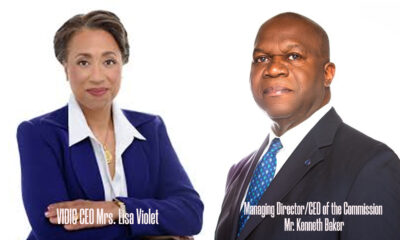
 Uncategorized5 days ago
Uncategorized5 days agoBritish Virgin Islands Regulators Move to Wind Down Bank of Asia (BVI) Limited
-

 Entertainment5 days ago
Entertainment5 days agoNeil Frett Named Honouree as 71st Virgin Islands Emancipation Festival Officially Launched
-

 Local News5 days ago
Local News5 days agoBVI U19 Rugby Squad Departs for Dominican Republic Development Tour
-
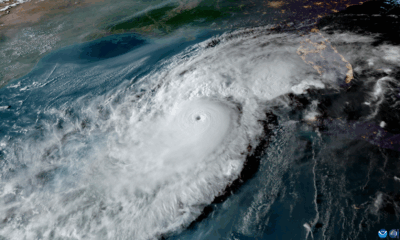
 Local News3 days ago
Local News3 days agoCaribbean Braces for Active 2025 Hurricane Season
-

 Uncategorized1 week ago
Uncategorized1 week agoChantel Malone Leaps to First Place Amid Headwinds at Tucson Elite Classic:
-
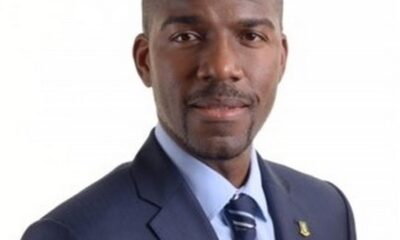
 International5 days ago
International5 days agoBVI Urges UK and Other Colonial Powers to Support Self-Determination of Remaining Territories
-
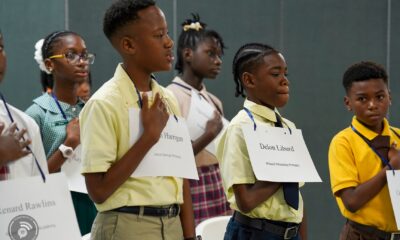
 Education6 days ago
Education6 days agoTwelve Primary Schools Advance to Final Round of 2025 Spelling Bee




















